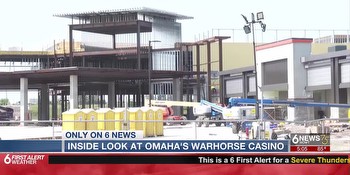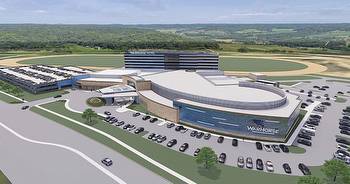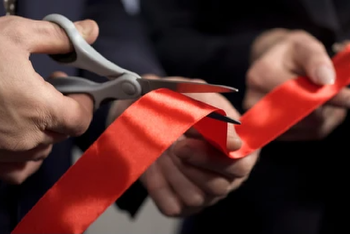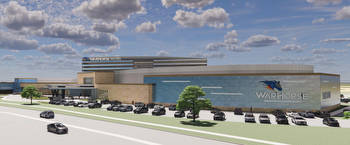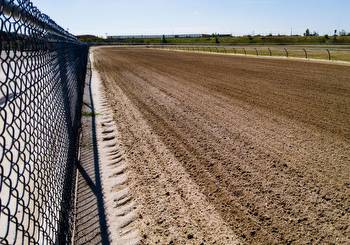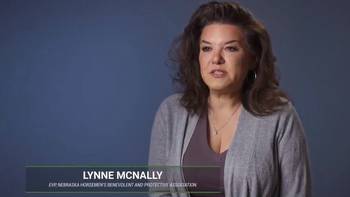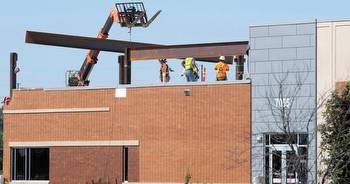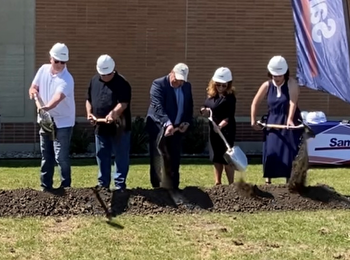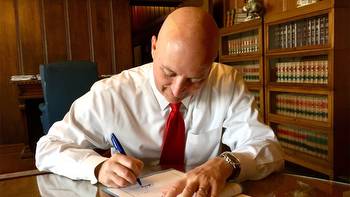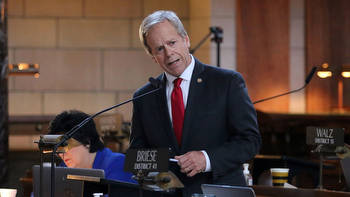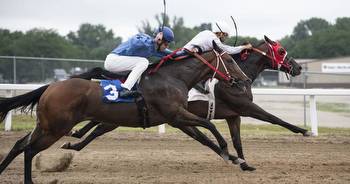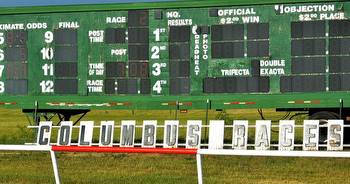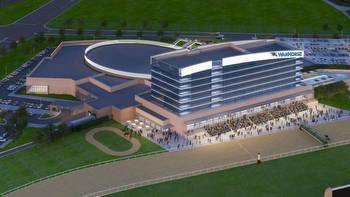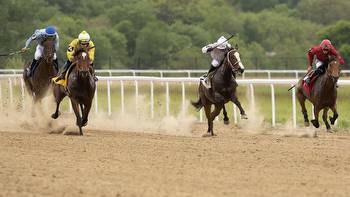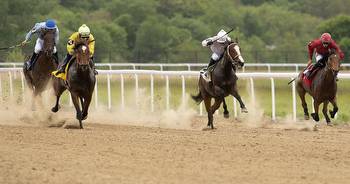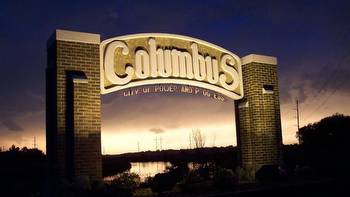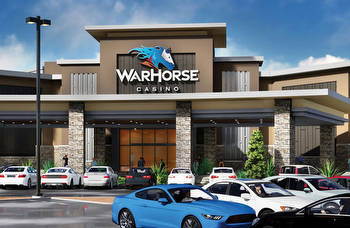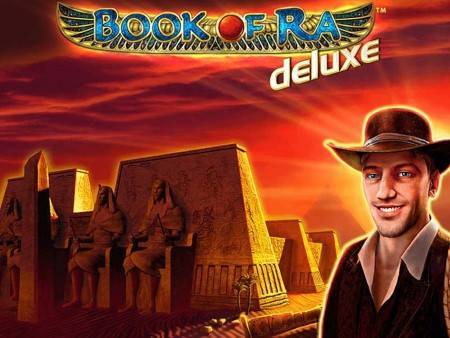Estimates on Nebraska casino revenue 'are all over the place'
New industry estimates show that casino gambling could give Nebraskans significantly more property tax relief than advocates touted during last year’s successful campaign to legalize expanded gambling.
One source put the amount at about $63 million annually from casinos planned at the state’s six existing horse tracks. Another projects it at closer to $82 million for those casinos — or as much as $98 million if two more tracks were licensed and casinos built.
All three figures top the $45.5 million that supporters estimated casino legalization would add to the state’s Property Tax Credit Fund each year.
But Anthony Lucas, a professor of casino management at the University of Nevada, Las Vegas, warned that the amount collected will depend on several factors, including the number and location of casinos built and the quality of the facilities.
Some factors are easy to track, such as population and driving distances. Others are harder to predict, such as whether a new casino proves attractive enough to keep Nebraskans from crossing the river to the Iowa casinos or whether it can lure people from outside the state to come and play.
“That’s why you see these estimates are all over the place,” he said. “This is a pretty common problem for new jurisdictions.”
Nebraska became the newest state to legalize casinos last year, when voters passed a trio of ballot initiatives. The measures included a constitutional amendment allowing casino gambling at licensed horse tracks and laws regulating the casinos and earmarking tax revenue for property tax relief.
Under those laws, the casinos are to pay a 20% tax on gross gambling revenue.
The state’s long-standing Property Tax Credit Fund, which offsets a portion of property tax bills, will get 70% of those taxes. The fund will provide $300 property owners million worth of credits this fiscal year, using money collected from sales, income and other taxes.
The rest of the gambling tax revenue will be divided among the city and county where the casino is located, state government and the Compulsive Gamblers Assistance Fund.
During the campaign, Keep the Money in Nebraska, the group pushing the initiatives, estimated casino revenue at about $325 million, which would yield $45.5 million in property tax relief.
Lance Morgan, president and CEO of Ho-Chunk Inc., the economic development arm of the Winnebago Tribe of Nebraska, said the revenue estimate used during the campaign focused primarily on the Omaha, Lincoln and South Sioux City areas. He said newer projections put the revenue closer to $450 million, bringing the property tax relief portion to about $63 million.
Ho-Chunk Inc. partnered with the Horsemen’s Benevolent and Protective Association, a group representing the horse owners and trainers who race in Nebraska, to get the initiatives on the ballot and campaign for their passage.
At the time of the vote, Nebraska had six horse tracks, in Omaha, Lincoln, Grand Island, Hastings, Columbus and South Sioux City, which meant the potential for six casinos. WarHorse Gaming, a new division of Ho-Chunk, has contracts to develop casinos at three of those tracks, Horsemen’s Park in Omaha, the Lincoln Race Course and Atokad in South Sioux City.
Morgan was skeptical of higher revenue estimates produced by Global Gaming Nebraska, a business entity of the Chickasaw Nation of Oklahoma that is working to develop casinos in Hastings, North Platte and Gering.
The entity has teamed up with Brian and Breann Becker, who operate a quarter horse track in Hastings but are now proposing to build a new track there and to establish new tracks in the other two locations.
Sean Boyd, president of Global Gaming Nebraska, estimated that casinos at the six current tracks could produce almost $583 million in revenue and almost $82 million for property tax relief. Adding casinos to potential tracks in North Platte and Gering would push revenue to about $698 million and the property tax money to about $98 million.
He said the projections were based on a proprietary model that takes into account such things as population, drive times, other forms of entertainment and competition. The model also looks at area residents’ “propensity to game.”
“The findings of this study verify our belief that western Nebraska is an untapped market for this type of entertainment facility,” he said. “We believe we can deliver revenue to the state and, in turn, to property tax relief.”
But Morgan believes that those revenue figures are overly optimistic and are geared to winning support for the new tracks.
“They’re looking for a big number because they want to sell the concept,” he said. “I think the average Nebraskan can smell when they are being manipulated.”
Morgan said a proliferation of track/casino combinations in Nebraska could weaken the whole market and harm everyone. He said the new casinos need to be big enough to lure Nebraska dollars back from the casinos in Council Bluffs and elsewhere.
While more casinos might produce modest increases in total gambling revenue, he said they would not provide the industry-saving boost to horse racing that backers of the ballot measures wanted.
“Having six tracks in a state like Nebraska is a massive number,” Morgan said, although he added that there may be room for one or two more.
Boyd estimated that Nebraska could support eight to 10 track/casino combinations, although he agreed that the market could suffer if all of the current proposals were approved.
“At some point, you may reach saturation, where you’re merely cannibalizing from each other,” he said.
At a July meeting, the Nebraska Racing and Gaming Commission heard plans for five new tracks, with accompanying casinos, in Bellevue, York, Norfolk, North Platte and Gering. Additional track/casino combinations have since been proposed for Ogallala and Kimball.
Commission members have taken no action on the proposals while working to set up the state’s oversight and regulatory process. One key step, a hearing on proposed rules and regulations, is set for 9:30 a.m. Friday at Nebraska Innovation Campus in Lincoln. But it could take several more months for the rules to win final approval from Gov. Pete Ricketts and Attorney General Doug Peterson.
In the meantime, state Sen. Tom Briese of Albion, who chairs the General Affairs Committee, plans to bring legislation in January to limit the number of track/casino combinations that can be approved. He said he is looking at a bill that would require track/casinos to be at least 50 miles apart and to have a minimum number of race days.
“I think it’s fair to say that Nebraskans don’t want a casino at every I-80 interchange or every county seat,” he said. “They want a well-regulated industry.”
Lucas, the casino management professor, said it may be prudent to start with a limited number of track/casinos in Nebraska. However, he said the market would eventually stabilize on its own, as the first entrants start seeing revenues drop and new proposals have difficulty getting backing to proceed.
“You want to end up with something that is economically viable and competitive,” he said.








